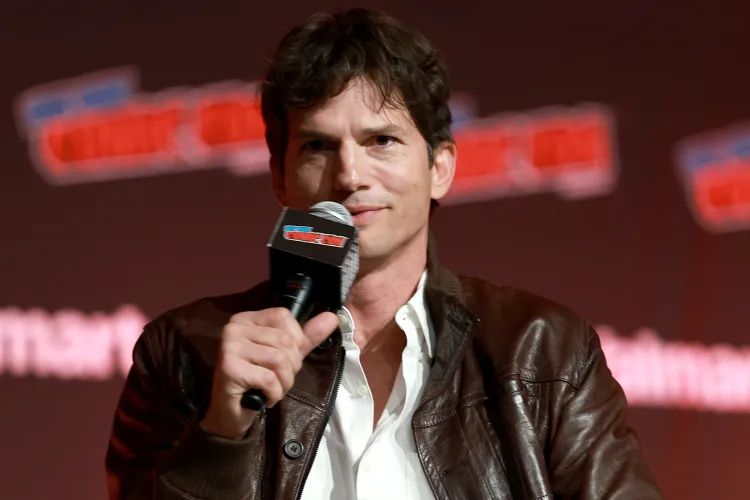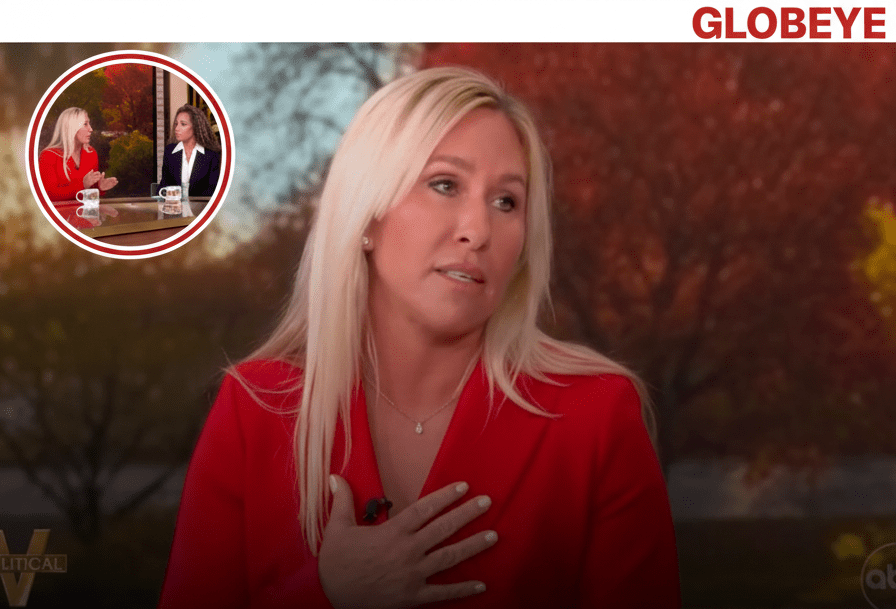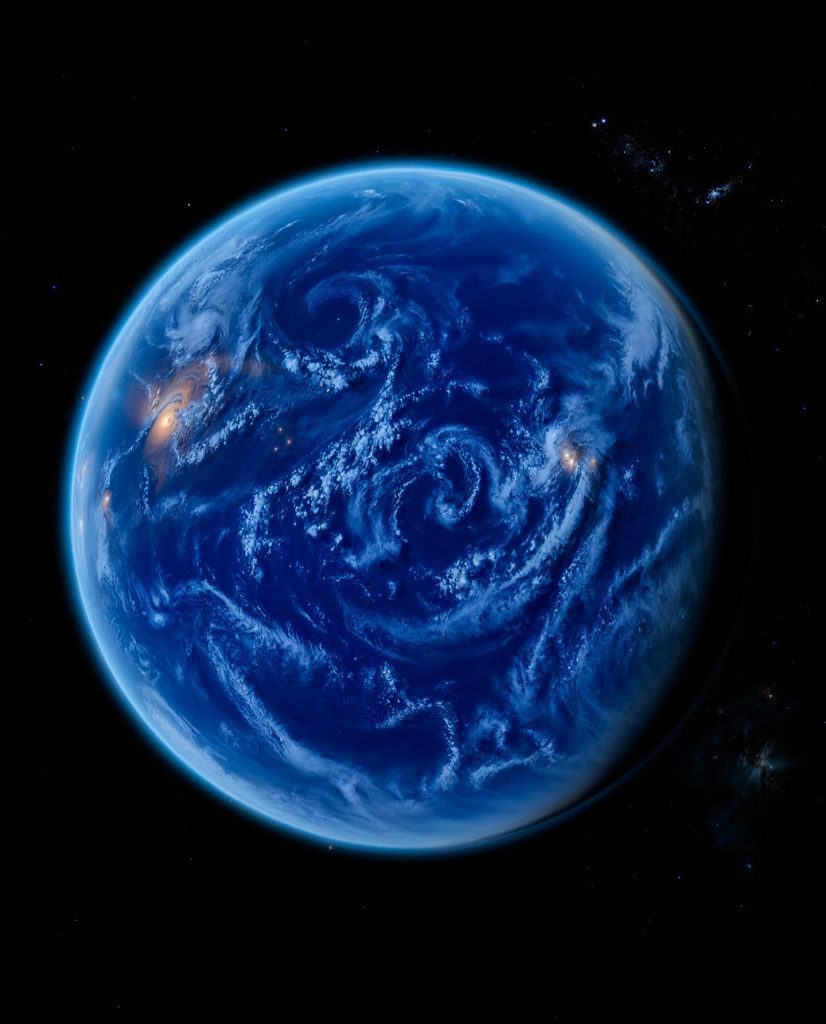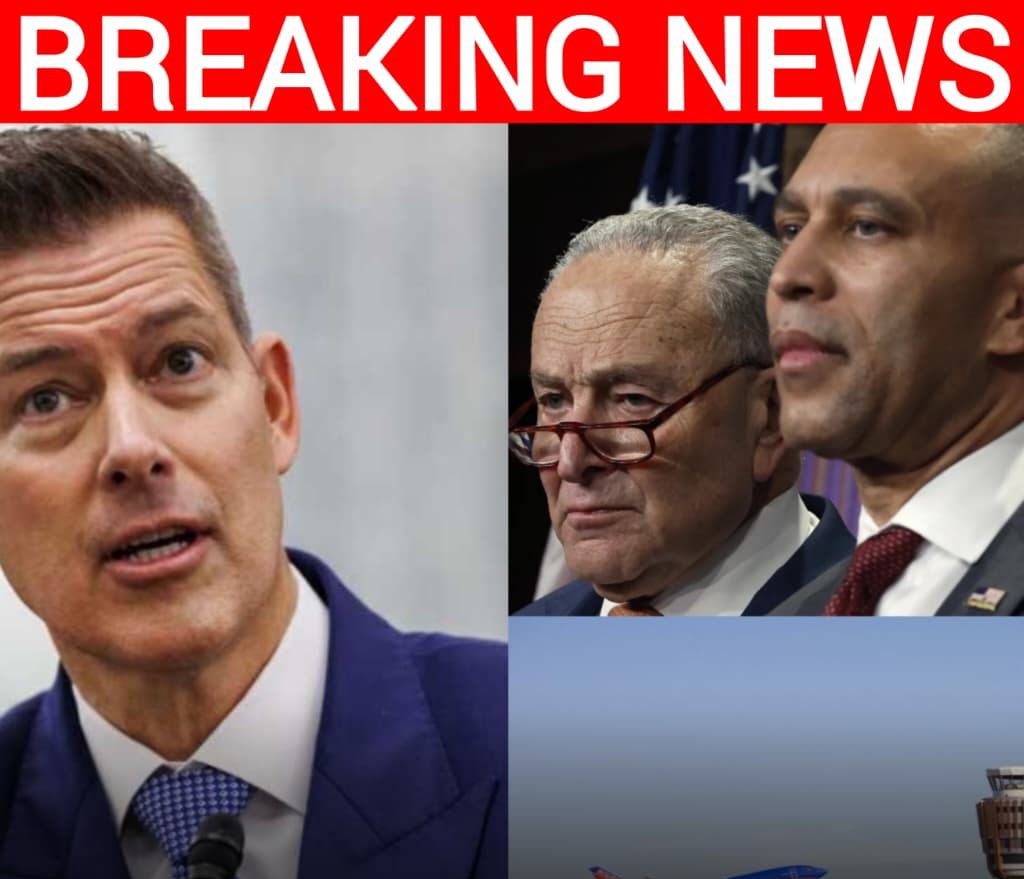At New York Comic Con, Ashton Kutcher Reveals He’s Lost Out on Projects “Because of the Way I Look” While Promoting FX’s The Beauty
In a room full of fans at New York Comic Con, Ashton Kutcher did something that made the big hall feel unexpectedly intimate—he talked honestly about how his face has sometimes worked against him. The 47-year-old actor, there for a panel about his upcoming FX series The Beauty, shared that he has missed out on roles “because of the way I look.” It was a quiet confession that landed with a surprising weight, not because Kutcher isn’t used to attention, but because he was willing to step past the usual promotional chatter and name something most people only guess about in Hollywood: looks can open doors, and they can close them, too.
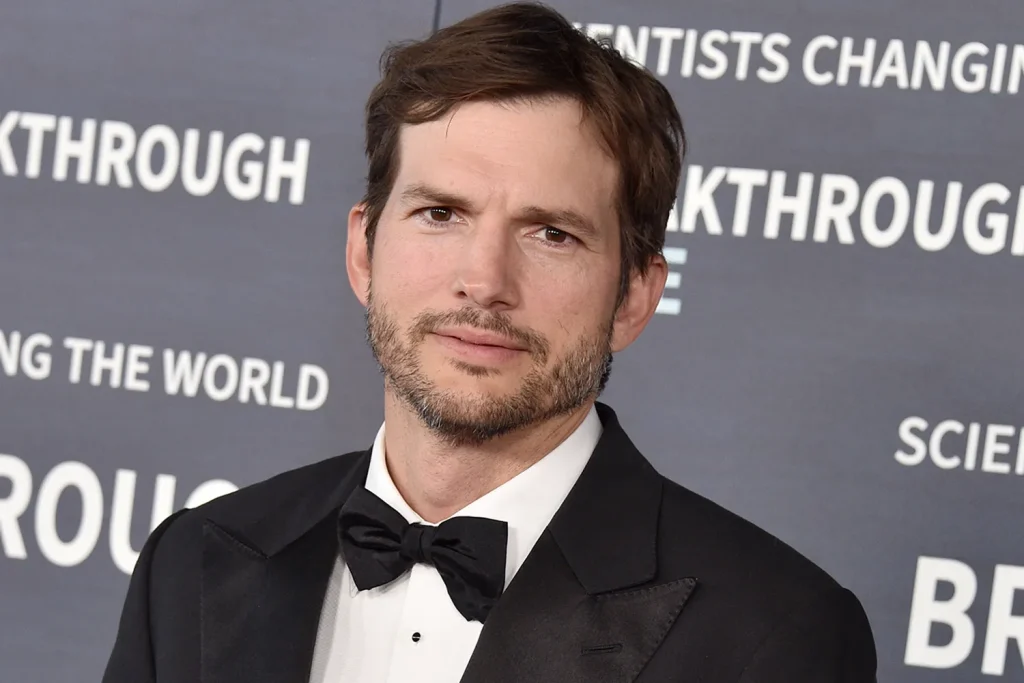
Kutcher has been orbiting the idea of the “leading man” since the beginning of his career. Viewers first met him as Michael Kelso on That ’70s Show, the goofy, handsome friend who often stole scenes with little more than a grin. That series helped launch a film run that included comedies and romantic leads, then more dramatic work like portraying Steve Jobs in Jobs and later settling into the lived-in world of The Ranch. From the outside, it’s easy to assume that conventional good looks only ever helped him. But on Saturday, Oct. 11, he described a different side of that story—certain roles required a face that telegraphed danger, or a life spent on a rough road, or just something that looked less like a polished studio poster. Casting rooms, he suggested, can read a face in a split second, and those split seconds sometimes take an actor out of the running before any dialogue ever starts.
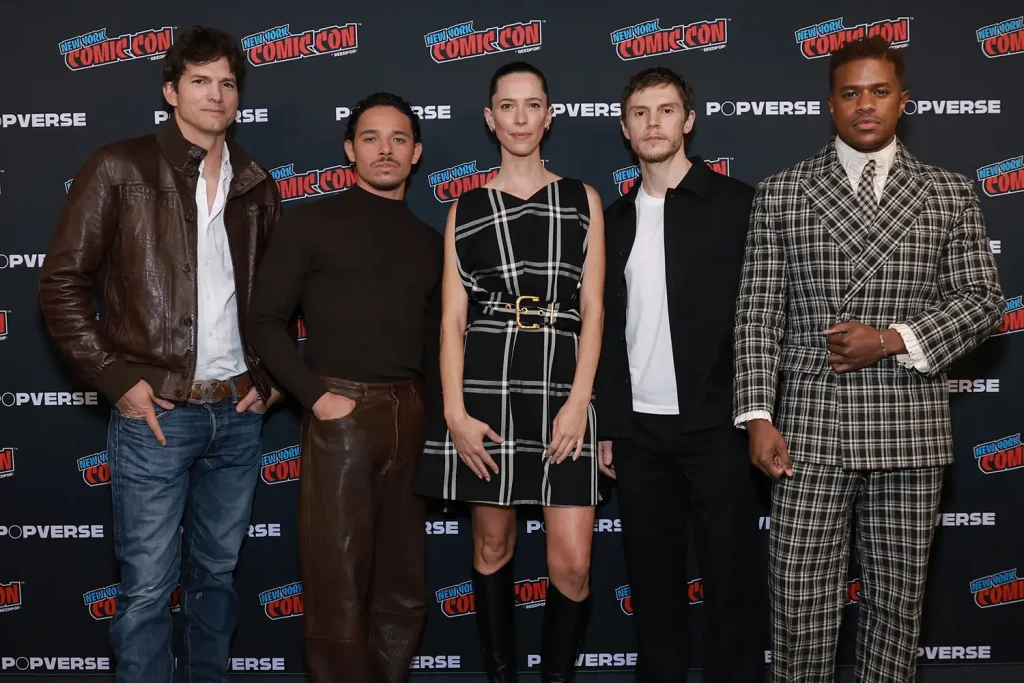
What made the moment resonate wasn’t bitterness. Kutcher didn’t position himself as a victim of his own fame or genetics. Instead, he seemed to be trying to explain the strange math of typecasting and expectation, the way entertainment can shrink a person into an easy label. When an industry decides you’re the romantic lead, the comedic heartthrob, or the charming buddy who lightens the mood, it can be hard to convince people you could also be the man who breaks bad, the mentor with shadows under his eyes, or the quiet threat in a thriller. He’s been fortunate, he noted, and he knows that. But the compliment of “you look the part” always comes with its shadow: there are plenty of parts you suddenly don’t look like at all.
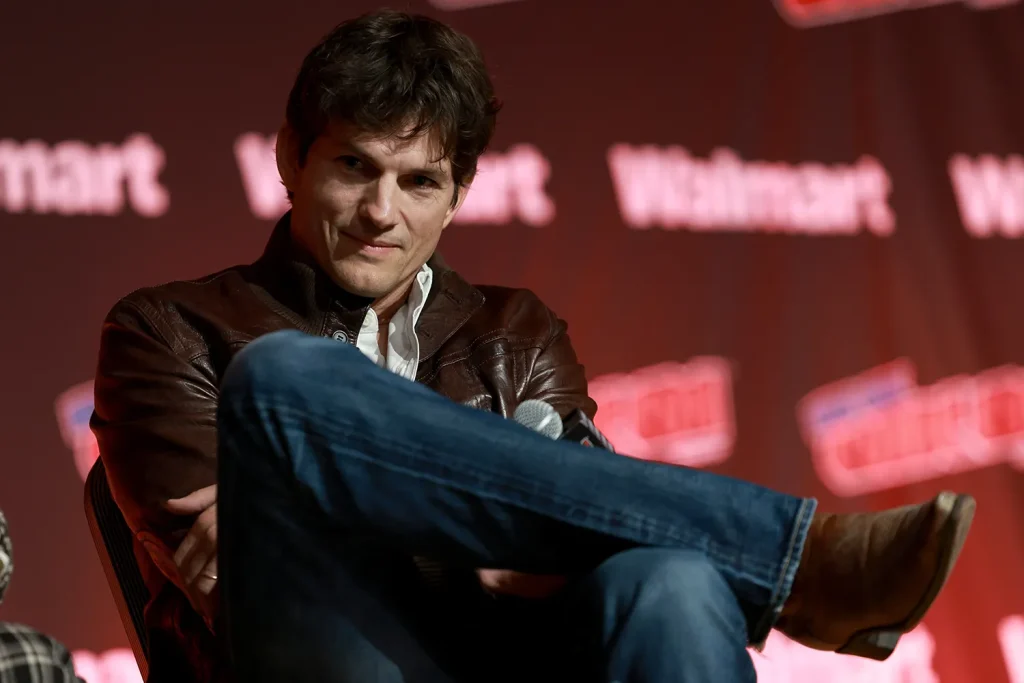
It was also clear that The Beauty has Kutcher thinking about the subject more deeply. Even without giving away plot specifics, the title alone invites a conversation about appearances, how faces become mirrors for what people project onto them. Kutcher’s comment fit that frame. Fans in the room seemed to appreciate the human side of a career they’ve watched for decades. Many of them grew up with his early sitcom work and then followed him into films and streaming series, and the idea that he is still pushing for range—still wanting to surprise audiences who think they know him—felt like a small promise that his next chapter might be the most interesting one yet.
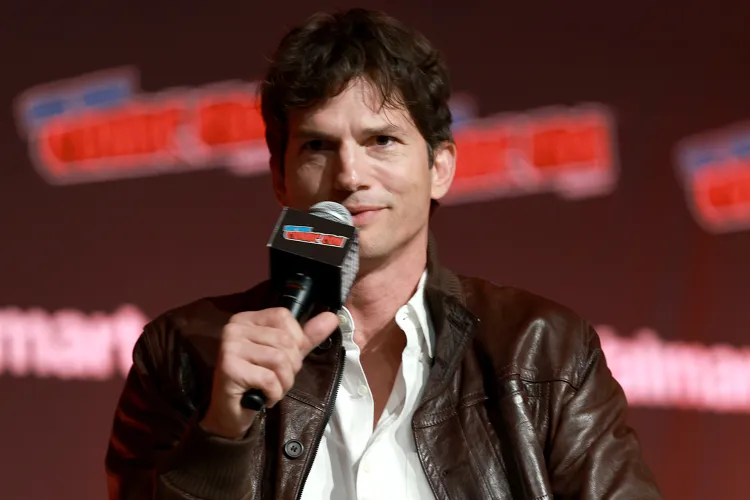
There is also something refreshing about a star acknowledging that “advantage” and “limitation” can sit side by side. Kutcher’s looks helped make him a household name; they also likely made certain directors assume they already knew what he could do. Anyone who has ever been pigeonholed at work—cast as the reliable one, the creative one, the spreadsheet person, the “nice” one—understands how it happens, and how hard you have to work to step outside the lines people draw for you. Kutcher’s career has had those steps: the comedic launches, the dramatic pivots, the producer’s mindset, the willingness to return to familiar ground and still hunt for something new. Hearing him say out loud that appearances have cost him opportunities makes the pursuit feel even more deliberate.
If anything, his candor hints at why audiences keep showing up. He is still curious. Still hungry for roles that stretch. Still willing to let fans see the seams of a job that is often sold as effortless glamour. And it’s hard not to think that directors listening to him at Comic Con might see the opportunity in exactly what he described. The next time a script calls for someone unexpected—someone who can play against the assumptions that come with an instantly recognizable face—Ashton Kutcher might be the person who slips into that space and changes the temperature of a story.
By the end of the panel, the remark felt less like a complaint and more like a window into the craft. Looks are part of the equation, but they aren’t the whole answer. Kutcher’s openness suggested he’s most interested in the parts where the math doesn’t add up at first glance—and those, historically, are the performances people remember. If The Beauty is any indication, he’s steering toward work that asks harder questions about identity and perception. And if he has to keep proving that there’s more to him than a first impression, he seems more than ready to do it.
